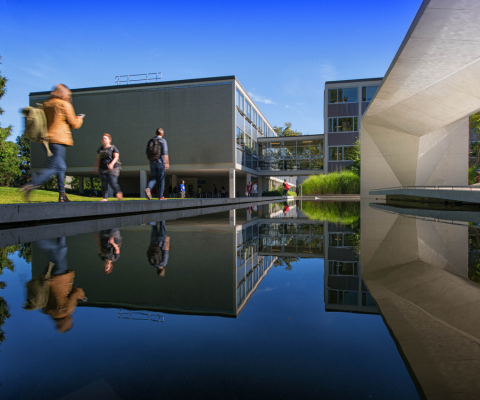Making a difference in medicine and health care

Canada’s universities understand the importance of supporting our health care system and advancing medical research. They are training new health-care professionals, establishing new and innovative programs and researching solutions to our toughest issues in health care.
Facts and stats about Canada’s universities
175,000 health-care students
There are 175,000 university students in health and related fields in Canada, an 8% increase from 2015/16.
Source: Table 37-10-0018-01, Postsecondary enrolments, Statistics Canada, 2022.
30,000 annual graduates
Annually, over 30,000 students graduate from university health-care programs.
Source: Table 37-10-0164-01, Postsecondary graduates, Statistics Canada, 2022.
1,600 medical and health related programs
There are 1,643 academic programs in medicine and health related fields at Canadian universities.
Source: Database of Canadian university study programs, University Study, 2023.
Training future medical professionals
Canada’s universities are training the medical professionals of tomorrow: doctors, nurses, pharmacists, physical therapists and more. Universities are investing in resources and facilities to train more health-care professionals. Dalhousie University recently introduced a new master’s program to train physician assistants, the first program of its kind in Atlantic Canada. Meanwhile, the University of Saskatchewan has increased medical student seats and University of Prince Edward Island and Toronto Metropolitan University are introducing entirely new medical schools to address doctor shortages.
Canadian universities leading in medical research
Beyond training medical professionals, quality health care also relies on strong medical research. Research leads to the development of life-saving medication and therapies, improves disease prevention and early detection methods and informs health policy, all of which improve quality of life.
Canada’s world-class researchers are working to find innovative solutions to solve some of our most pressing health concerns. A team at Western University, for example, is using nuclear medicine and rare isotopes to treat metastatic cancer. Researchers also look to treat currently uncurable childhood diseases, like type 1 diabetes, and advance treatment for problems which affect millions of Canadians like corneal repair for vision loss.
The intersectional future of health care
Universities increasingly approach health care education and medical research through an interdisciplinary lens. This can drive innovation and lead to unexpected findings, like at York University, where a neuroscientist discovered that dancing improves the mobility and mood of people with Parkinson’s disease. The University of New Brunswick is developing a specific centre to address health challenges with an interdisciplinary approach, while medical trainees at the University of Windsor have the opportunity to broaden their perspectives through a medical rotation at a homeless shelter.
About Universities Canada
Universities Canada is the voice of Canada’s universities at home and abroad, advancing higher education, research and innovation for the benefit of all Canadians.
Media contact:
Lisa Wallace
Assistant Director, Communications
Universities Canada
[email protected]




